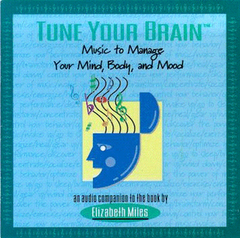This is your brain on money: Write a check to charity, get a pleasure hit. Sell your sorry old Ford stock at a loss instead of your high-flying Google shares at a gain, and feel a deep pain in your brain that belies the fact that dumping the loser is the smart thing to do. Folks, welcome to
neuroeconomics, a recent entry in the quest to link up brain structures and functions with how we are as humans.
Scientists are using MRI technology -- the same machines that have yielded much insight about how music works in the brain -- to study the brain centers involved in making money decisions. The results are standing the dismal science on its head. It turns out we might not make getting and spending choices in the rational way economists presume. Our money-related behavior may stem instead from rather irrational responses to pleasure and pain.
First, on why you'd sell Google and hold Ford:
Behavioral studies show that people feel the pain of an economic loss about twice as much as the pleasure of an economic gain -- and recent research suggests it may be your brain to blame. In a
study that used MRI to peek at the brains of people making gambling decisions, researchers found that as the potential for gains rose, the participants showed increased activity in the brain's dopamine systems. As the potential for losses increased, on the other hand, activity decreased. Dopamine is a neurotransmitter released not by higher thought, but by things like eating food, having sex, and taking drugs. Apparently, the prospect of losing yummy dopamine is significantly more terrible than getting more is good, and this drives our financial decisions.
Another
recent study reported in the journal Science used MRIs to discover that giving money to charity lights up brain areas called the nucleus accumbens and the caudate nucleus -- pleasure centers, again, which might help explain why we give money away when any rational economic maximizer would keep it for herself.
Could we get an MRI study that introduces music into the mind-money equation? Retailers have long known that playing
Energizing music makes consumers buy more, which may relate to the increased brain wave activity, confidence and drive to do that Energizing music can cause.
If your brain on money is less rational than you might like, counter by putting your brain on the right type of music. I recommend preserving your assets by doing all your online shopping and banking to the strains of
Relaxing music. When it's time to do taxes or work up a budget,
Focus music keeps the clear-thinking alpha brain waves flowing. But though it may make you spend more, feel free to let the
Uplifting music rip when writing checks to charity. You deserve to feel good when doing good.


